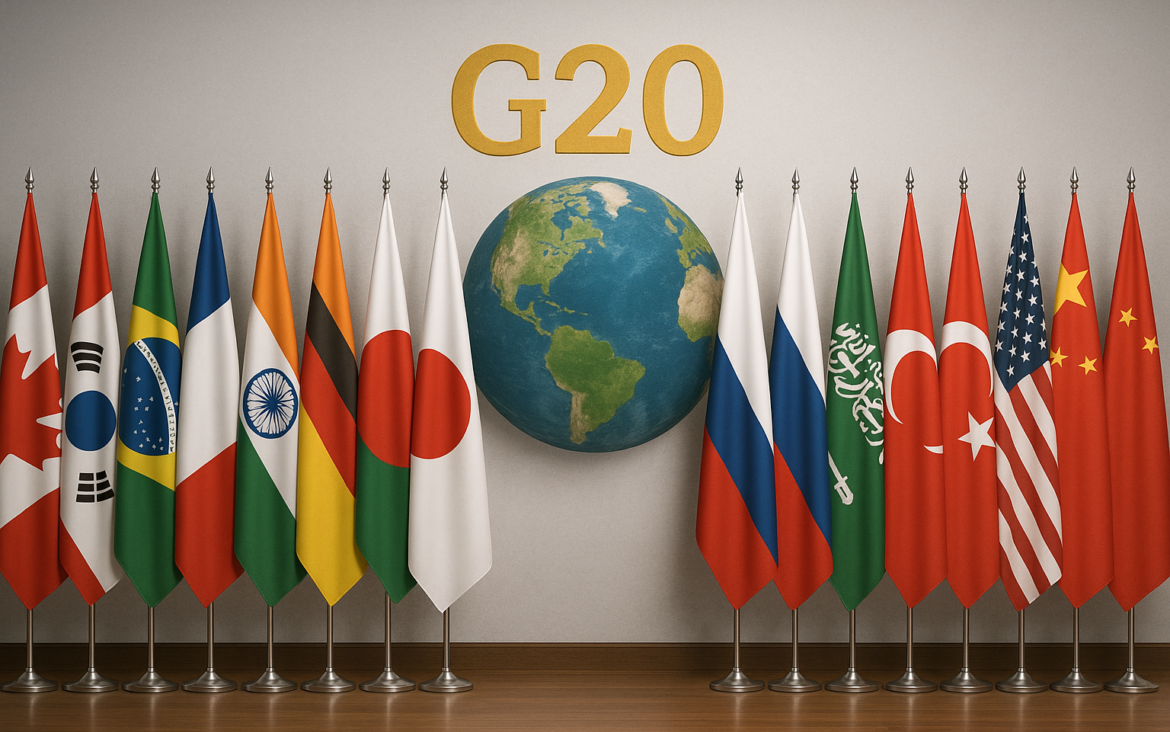The Group of 20 which is better known as the G20 is a bloc of 19 of the world’s biggest economies, the European Union, and the African Union which was recently admitted into the group in 2023. The G20 member states are responsible for 85% of the world’s GDP and by extension, global trade thus making them the world’s most powerful economic bloc with decisions taken by them having far-reaching effects on the rest of the world.
The G20 has emerged as the foremost forum for global economic cooperation, bringing together the world’s leading economies to address pressing economic challenges. Since its inception in 1999, the G20 has played a crucial role in shaping the global economy, promoting stability, and fostering growth. However, the G20 also faces significant challenges that must be addressed to ensure the continued prosperity of the global economy.
This year’s G20 summit was held recently in Rio de Janeiro, Brazil with the theme being “Building a Just World and a Sustainable Planet”. To achieve this, the summit agreed to take measures to tackle poverty while working to impose new taxes on the ultra-rich and to boost climate funding to protect the environment.
However, Donald Trump’s imminent return to the White House overshadowed the G20 summit in Rio de Janeiro with fears that he might engage in trade wars against some of the member countries and thus make a mockery of some of the trade agreements that they had agreed on in the past. Other issues of concern were the ongoing wars in Ukraine, Gaza, and southern Lebanon and how they are affecting the global economy.
The G20 has been instrumental in shaping the global economy through various initiatives and agreements, including efforts to enhance global financial stability by implementing measures to strengthen financial regulation, improve crisis management, and enhance international cooperation. In the area of climate change and alternative energy transition, the G20 has been playing a leading role and is committed to reducing greenhouse gas emissions, promoting renewable energy, and increasing energy efficiency.
Regarding trade and investment, the G20 has worked to promote free trade, reduce protectionism, and facilitate investment flows while they have also launched initiatives to promote economic development, reduce inequality, and enhance access to education and healthcare.
Despite its successes, the G20 faces several challenges that need to be addressed to ensure the continued stability and growth of the global economy. Some of the key challenges include the issue of rising protectionism which China has been severally accused of and threats of more protectionist policies by the incoming Donald Trump administration. The resurgence of protectionist policies and trade tensions threatens to undermine the progress they have made in fostering global trade and economic growth.
Climate Change and its consequential environmental degradation is another major challenge confronting the G20. They must intensify efforts to address climate change, promote sustainable development, and protect the environment while they also need to tackle issues of inequality and social unrest which are a consequence of rising income inequality and poverty. Social unrest poses significant challenges to economic stability and growth.
While the world welcomes technological innovation, the rapid pace of technological change threatens to disrupt labor markets, exacerbate income inequality, and increase poverty rates across the globe. The G20 must adapt to changing global circumstances and reform its institutions to ensure effective governance and decision-making.
To address the challenges facing the G20, there is a need to enhance collaboration and coordination among G20 members to address global challenges. They also need to implement policies to reduce income inequality, promote social inclusion, and enhance access to education and healthcare.
Regarding Climate Change they need to intensify efforts to switch to cleaner energy sources, promote sustainable development, and protect the environment. There is also a need to invest in education and training programs to prepare workers for the changing job market which is certain to occur as the world continues to embrace technological innovations. These innovations have also shrunk the world into a global village which is now affecting global governance and legislation, G20 member countries need to adapt to ensure effective governance, decision-making, and responsiveness to changing global circumstances.
The G20 has played a vital role in shaping the global economy and promoting stability and growth. However, the forum faces significant challenges that must be addressed to ensure the continued prosperity of the global economy. By working together, the G20 members can overcome these challenges and build a more sustainable, equitable, and prosperous future for all.
Oshobi, a development economist, management consultant, and author writes from Lagos, Nigeria.

